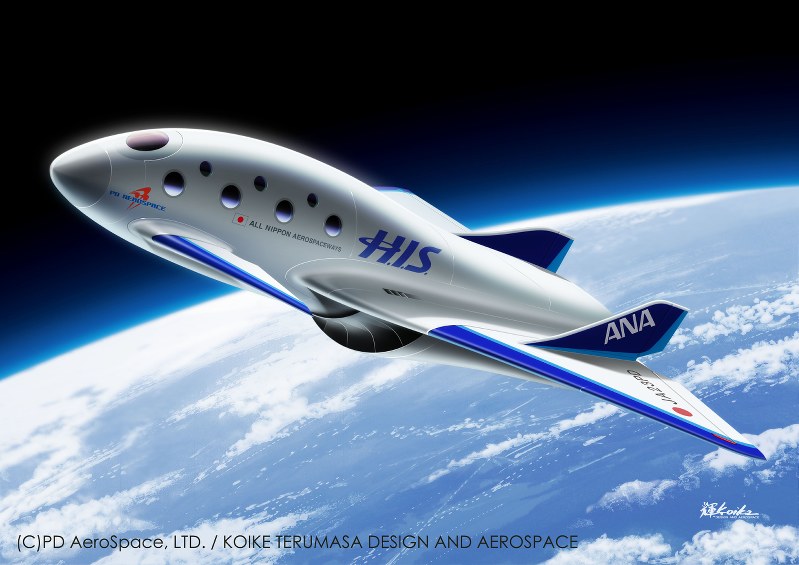SRI’S PROGRAM IS NOW URGENT, IN ORDER TO END THE POST-LOCKDOWN RECESSION

Abstract
This article discusses the urgency to start developing reusable passenger-carrying space-vehicles. Growth is necessary for quality of life, and no more growth will be possible without free space travel. Creation of new business activities is necessary, and lack of new industries is a permanent condition in advanced societies. The article also confutes the theory that economic growth is dangerous, and should be reverted, and discusses what new industries are candidates for creating tens of millions of new jobs, without destroying jobs in existing industries. The 7th major transportation technology — space travel, based on rocket propulsion – is compared to the previous 6 ones: horse-carriages, sailing-ships, trains, propeller-driven ships, cars, trucks and buses, aircrafts. Collins brings powerful arguments to sustain the rapid development of a range of reusable passenger-carrying space-vehicles, followed by orbiting and lunar commercial and industrial infrastructures. Collins also explains why the SRI’s viewpoint has now become urgent due to the “Lockdown Recession”, arguing that even before the recent “lockdown” policies, economic growth was weak in the rich Countries. And, nowadays, the 7th transportation industry should be very attractive to governments. Collins ends by a strong confutation of the two major objections to civilian space development: 1) developing a luxury service like space travel was unnecessary and wasteful 2) de-industrialization was necessary to reduce humans’ environmental impact; and the clear indication that the development of space travel services should receive at least 1/1,000 of the budget that “green” policies receive, or about 1% of what space agencies receive for their activities. A severe judgment is then pronounced on those who advocate ending economic growth due to the “dwindling resources” of Earth: they are like a small child who still believes that the house where they live is the whole world.
——— ooo ———
It has been a fundamental theme of Space Renaissance International (SRI) ever since its beginning in 2008, that vigorous economic growth, which is necessary to continue improving the quality of life for everyone in the world, will not revive until the general public is able to freely travel to space on low-cost passenger space-vehicles.
The reason for this is simply the nature of the process of economic growth. Overall, in order to earn a high salary, people need to be able to serve many customers (NB for most people this is done indirectly through working together with other people in a company). As progress in technology and business methods enables each person to serve more customers, fewer and fewer employees are needed to perform existing business activities. Consequently, unemployment would grow and grow unless there is continual creation of new business activities and new industries. In recent years, an additional trend is that older industries have moved to low-cost countries, which has aggravated the lack of new industries in the richer countries, leading to high unemployment and slow or no economic growth. As long as this lack of new industries continues, more and more people will lose the opportunity to improve their quality of life.
Recently some people have started to claim that economic growth is dangerous, or no longer possible, or even to advocate reversing economic growth. SRI strongly disagrees with this, because it is unnecessary, and would cause extreme hardship for most of the world population. SRI believes that it is easy to continue economic growth; that any bad side-effects of economic growth can be reduced by good policy-making; and that everyone can continue to have ever-improving quality of life. However, this requires the creation and growth of sufficient new industries capable of creating high-quality employment for tens of millions of people – which have been seriously lacking so far in the 21st century.
So what are candidate new industries today? We need to be careful, since plenty of new industries destroy employment in older industries: a striking example is the Internet, which certainly creates many new jobs, but simultaneously destroys many older jobs – not just in bookshops and music stores, but in almost all retail chains, numerous publishing companies, and other businesses. This is not necessarily a bad effect overall, but it increases unemployment much faster than it creates new employment. So – again – what new industries are candidates for creating tens of millions of new jobs – without destroying jobs in existing industries ?
In this situation, history is a useful guide: among the stream of new technologies that have enabled human societies to progress from simple agriculture to modern industrialised states, 6 major transportation technologies have each spread around the world, creating hundreds of millions of jobs, as well as innumerable related new businesses. These are 1) horse-carriages, 2) sailing-ships, 3) trains, 4) propeller-driven ships, 5) cars (and trucks and buses) and 6) aircraft. In many less-developed countries, horse-carriages and sailing-ships still play a major role, while trains, ships, cars and aircraft are still the indispensable basis of most economic activity worldwide, greatly increasing the productivity of all other work, and thereby making a unique contribution to achieving middle-class life-styles for billions of people worldwide.
Unfortunately, most people, including most economists and politicians, still do not understand that the 7th major transportation technology was developed in 1942 – but has still not been allowed to grow to the scale of the previous 6 transportation technologies. This is space travel, based on rocket propulsion. Modern rocket engines are far more advanced than those of 1942, but they have still not been used in space-vehicles designed to carry ordinary members of the general public. The only space vehicles that carry people today are still just satellite-launching missiles carrying a “capsule” for crew instead of a satellite. (Even the much-anticipated “Dragon” is just another capsule to be launched on a missile – 60 years after Gagarin!) However, there is plenty of evidence that the use of reusable passenger-carrying space vehicles can grow into a world-wide industry as large as air travel.
Please remember that before the “lockdowns”, passenger air travel had reached 10 Million passengers per day. It grew to this scale simply because travel is extremely popular worldwide, and so the power of consumer demand has propelled the development of ever-improving airliners and related technologies. The great success of air travel has also generated innumerable spinoff businesses, employing about 100 Million people worldwide. No other use of aircraft is anywhere near as large – and the costs are paid for commercially, generating huge tax revenues for governments, rather than being a burden for taxpayers.
A second very important basis of SRI’s thinking is that the technology needed to supply low-cost passenger space travel services already exists, as a result of governments around the world having spent about $2 Trillion developing space technology over the past 70 years. This includes, in particular, safe and efficient rocket-engines and closed-environment control-systems, as well as related technologies of avionics, worldwide air-traffic management, airports, weather-forecasting and others.
Consequently, the rapid development of a range of reusable passenger-carrying space-vehicles – initially “spaceliners” and orbiting hotels – followed by orbiting factories and spaceports, ferry services to and from the Moon, and lunar cities, will cost only a small fraction of the $30 billion/year that governments already spend on their space agencies’ activities. And once the needed vehicles have been developed, the great bulk of the investment in growing the space travel industry will be paid for commercially, just like existing airlines, airports, hotels and resorts on Earth.
SRI’s viewpoint has now become urgent due to the “lockdown recession”.
Understandably, there is now a lot of discussion about restarting economic growth after the recent “lockdown” policies end. Many commentators are extremely pessimistic, arguing that many businesses that have closed due to the “lockdowns” will not revive. That is, the record high levels of unemployment caused by governments’ “lockdown” policies seem likely to continue for several years.
It must be remembered that even before governments were panicked into implementing “lockdown” policies, economic growth had been very weak in the rich countries throughout the present century – due to the lack of new industries described above. This lack of new industries has now become critical: in addition to many small and medium-sized businesses having disappeared, the use of robots is progressing rapidly – soon to be followed by self-driving trucks, IoT, AI and related activities which will eliminate many more jobs. So the prospect of the 7th great transportation industry, space travel, growing to global scale over the coming decades, while giving birth to innumerable new related businesses, should be extremely attractive to governments, once they are educated about the wonderful potential for stimulating economic growth.
However, we must be prepared for the inevitable counter-arguments, of which two are most common. People unfamiliar with SRI’s policy typically raise the following objections.
“But in a terrible recession such as we are now entering, developing a luxury service like space travel is unnecessary and wasteful!”
A mistake that is easy to make is to believe that the technologies that generate economic growth are ones that society “needs”. But before they are invented, most new technologies are not “needed”: no-one needed cars or personal computers or mobile phones or the Internet – but once they became available many, many people wanted to use them. Also, once again, history is useful: during the depression of the 1930s the airline industry grew rapidly, creating a valuable new axis of economic growth, stimulating investment in the development of airline networks worldwide.
A second criticism is from advocates of de-industrialization to reduce humans’ environmental impact. Whether one agrees or disagrees with advocates of “green new deal” policies, they have already received TRILLIONS of dollars and euros from taxpayers – but this massive investment has still not yet made “renewable” energies competitive, neither in cost nor in environment impact, compared to the traditional, natural energy resources of coal, oil and gas. These continue to become ever cheaper and cleaner and more convenient to use, while the evidence that “renewable” energies can power the modern world remains very unclear. So, without even criticising “green new deal” advocates who continue to receive tens of Billions every year, SRI argues vigorously that the development of space travel services should receive at least 1/1,000 of the budget that “green” policies receive, or about 1% of what space agencies receive for their activities – which have also created very little new employment, and are not contributing to the development of space travel services for the general public.
In round figures, 1 Billion invested commercially in a successful new business leads to sales of some 1 Billion/year, which earns perhaps 10% profit/year for a few decades. Neither space agencies, nor “green” policies have succeeded in creating commercial activities on a scale that matches the huge amounts of government investment they have received. The reason is the same – because they do not create services which much of the general public wish to buy.
Consequently there is no rational justification for the argument: “No. It is better not to spend even 0.1% of what we spend on the “green new deal”, or 1% of what we spend on space agencies’ activities (neither of which are creating large-scale employment) to develop the new industry of space travel, which will provide services which are known to be popular with most of the general public.” This is particularly true for younger generations who will benefit most from tens of millions of new jobs, as well as from the definitive opening of the door to limitless economic growth with no environmental impact, which is the next phase of human destiny.
Raising funding from governments, businesses, charitable foundations and private investors in order to realise SRI’s policy is now urgent. The sooner that passenger space travel services are developed, the sooner that vigorous economic growth can revive worldwide, and everyone can look forward to a more prosperous future. Once we start to make use of resources outside Earth, there will be no limit to the potential growth of humans’ activities. This Space Renaissance will show clearly the crucial mistake made by those who advocate ending economic growth due to the “dwindling resources” of Earth. This narrow, short-term view is like a small child who still believes that the house where they live is the whole world. If we do not now prioritize the development of popular space travel, we will end up in the world of “Player Piano”, Kurt Vonnegut’s first novel, in which all factories are 100% robotic, and most of the population passes the time in government “make-work” schemes. The flaw in the story is that there is no need for such make-work schemes, because expanding our civilization out into space can create as many jobs as wanted.
However, the Space Renaissance can only begin when the cost of travel to and from orbit is sharply reduced by reusable passenger-carrying space-vehicles, which will enable popular demand to drive the growth of space activities, as it has successfully driven air travel, creating 100 Million jobs worldwide. Simply, in democratic and capitalistic countries, the main objective of space policy should be to make space travel available to the general public. The public will then choose and pay for the growth of space activities they like, which will grow to vastly greater scale than government space activities, while creating enormous wealth worldwide.
The Civilian Space Protocol initiative
Space Renaissance International (SRI) is a proud co-host, together with other Space Advocacy organizations, in a worldwide campaign, named “The Civilian Space Protocol” (CSP). Please check it here: https://civilianspaceprotocol.space/
A letter, including the text of the Civilian Space Protocol, will be sent to all of the Planet Earth’s Governments, and to the United Nations, recommending a better expenditure of the public money, to support civilian space development.
Every space advocacy organization of Planet Earth is invited to co-host – inter pares – this important initiative, that could represent an epochal event in the history, allowing the whole space community to speak with one voice, about the very urgent need to support the expansion of civilization in the outer space.
Here it is possible to subscribe as a co-host of the Civilian Space Protocol
Are you a space enthusiast? Are you willing to help Space Renaissance in our outreach continuous action and to develop our next programs?
Join us as a member
Give some of your spare hours to SRI, joining our Volunteer Team
Also, you might be interested to the book “A greater world is possible: The expansion of civilization beyond the limits of our home planet is the moral issue of our time”, available on Amazon
Visit the Space Renaissance websites:
https://spacerenaissance.space
https://academy.spacerenaissance.space
https://spacerenaissance.com










 Space Renaissance France (French Chapter of SRI)
Space Renaissance France (French Chapter of SRI)  Space Renaissance USA, Inc. (USA Chapter of SRI)
Space Renaissance USA, Inc. (USA Chapter of SRI) Space Renaissance (Italian Chapter of SRI)
Space Renaissance (Italian Chapter of SRI) Space Renaissance Academy
Space Renaissance Academy Space Renaissance Initiative Group
Space Renaissance Initiative Group